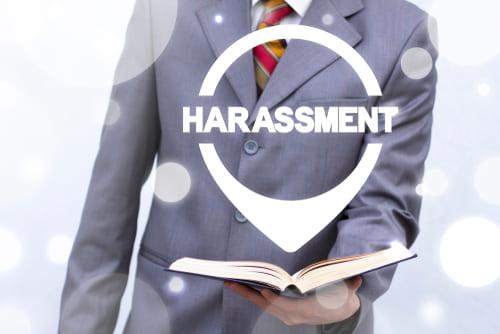Wheaton Office |
St. Charles Office |
Sycamore Office
 630-665-7300
630-665-7300
What Should Bars and Restaurants Do to Prevent Sexual Harassment?
 Employees in many different workplaces experience sexual harassment. Sexual Harassment is an especially common issue in bars and restaurants. To ensure that employees are protected, Illinois law has created specific requirements that apply to these establishments.
Employees in many different workplaces experience sexual harassment. Sexual Harassment is an especially common issue in bars and restaurants. To ensure that employees are protected, Illinois law has created specific requirements that apply to these establishments.
Employees who have experienced sexual harassment need to understand their rights and options for addressing situations where employers failed to address sexual harassment correctly. An experienced Illinois sexual harassment attorney can help restaurant or bar employees seek justice for the ways they have been negatively affected by sexual harassment.
Requirements for Bars and Restaurants Under Illinois Law
Under the Illinois Human Rights Act, bars and restaurants are required to take certain steps to prevent sexual harassment towards employees. Employers must have a written sexual harassment policy and distribute it to all employees. The policy must include:
- A definition of sexual harassment.
- A prohibition against sexual harassment in any form that affects employees.
- A description of the internal complaint process when employees have experienced sexual harassment, including methods that protect the confidentiality of employees when reporting harassment to managers, HR departments, corporate headquarters, or an establishment's owner.
- Contact information for filing a complaint at the state level through the Illinois Department of Human Rights (IDHR) or at the federal level through the U.S. Equal Employment Opportunity Commission (EEOC).
- A prohibition against retaliation against employees who report harassment.
- The requirement for all employees to participate in training to prevent sexual harassment.
Employers must provide annual sexual harassment prevention training to all employees. This training must meet certain requirements, including explaining unlawful sexual harassment, providing examples of conduct that constitutes unlawful harassment, summarizing Illinois laws that address sexual harassment, and ensuring that employees understand an establishment's sexual harassment policy.
Steps Bars and Restaurants Should Take to Prevent Sexual Harassment
Owners and managers of restaurants and bars must ensure that their employees work in a safe and respectful environment. To do so, they can:
- Create a culture of respect: Managers or others in positions of authority can set a positive example and demonstrate a strong commitment to preventing sexual harassment. They can also encourage open communication and ensure employees feel safe when discussing concerns and reporting instances of sexual harassment.
- Implement comprehensive policies: In addition to meeting the minimum requirements under Illinois law, sexual harassment policies must ensure that employees are able to report issues safely. Management should take immediate action in response to any complaints, ensuring that employees are protected against behavior that could affect their well-being.
- Monitor and evaluate: It is important to regularly review and update sexual harassment policies and training programs. Managers can solicit feedback from employees on the effectiveness of sexual harassment prevention measures and incorporate their ideas to make sure these issues will be addressed correctly.
Options Available to Employees Who Experience Sexual Harassment
Bar and restaurant employees who have experienced sexual harassment by co-workers, managers, or customers need to understand what steps they can take to address these issues. Options include:
- Internal reporting: Complaints may be made to a manager, HR department, or a designated contact person as outlined in the company's sexual harassment policy. Incidents can be documented through detailed records and logs, including dates, times, locations, and any witnesses.
- External reporting: An employee can file a complaint with the Illinois Department of Human Rights within 300 days of an incident, (which will automatically be filed if more than 15 employees with the U.S. Equal Employment Opportunity Commission).
- Legal action: An attorney can provide guidance on steps that may be taken to address issues such as retaliation for reporting sexual harassment or harm caused by an employer's failure to follow a sexual harassment policy. Depending on the circumstances of a case, a lawsuit may be filed to recover compensation for damages caused by sexual harassment.
Contact Our Wheaton, IL Sexual Harassment Attorneys
Employees of bars or restaurants should be able to work in a safe and respectful environment. The DuPage County, IL sexual harassment lawyers at Mirabella, Kincaid, Frederick & Mirabella, LLC., can help determine how to address sexual harassment that has caused an employee to suffer financial, emotional, or physical harm. We fight to protect our clients' rights and ensure that they can achieve justice. Contact our office at 630-665-7300 for an initial attorney meeting and get the legal representation you need.


 Read More
Read More





